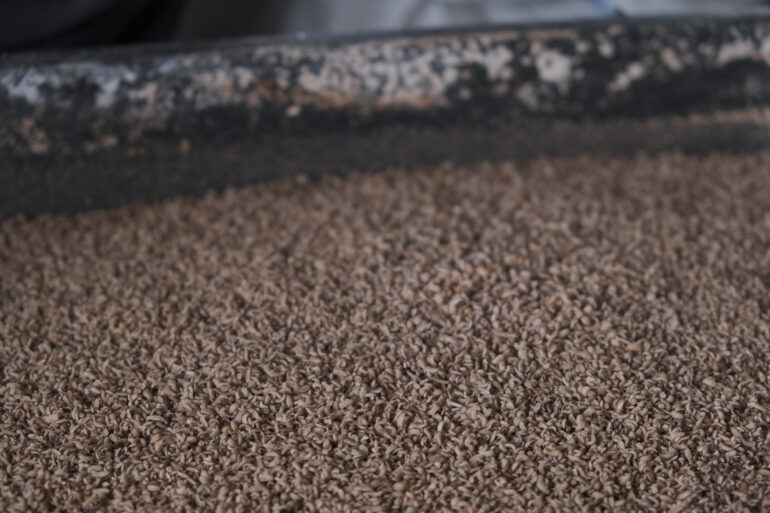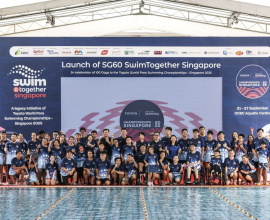Insects as protein alternatives may seem gross, but Singapore-based Entoverse continues striving in the insect-farming industry by partnering with Inagro.
With environmental changes on the rise and a rapidly increasing population, there has been much stress placed on food supply chains. There is now an increased, and pressing, demand to find new and sustainable food sources, with nations battling the idea of food security. Solutions have been put in place like investing in agriculture and attempting to come up with innovative ways of growing crops that use lesser resources, but one unique method is to see if insects as protein are a viable source of nutrition with the help of insect-farming.
Yes, insects. The small critters you see scurrying around your room at the most unlucky opportunity.
Organisations like the Food and Agriculture Organisation of the United Nations have attempted to push the idea of edible insects. Similarly, the EU has supported the idea by approving commercialization in the industry. It isn’t all too surprising that insect protein is starting to be researched as a potential source of nutrients for the future.
protein alternatives and insect-farming.
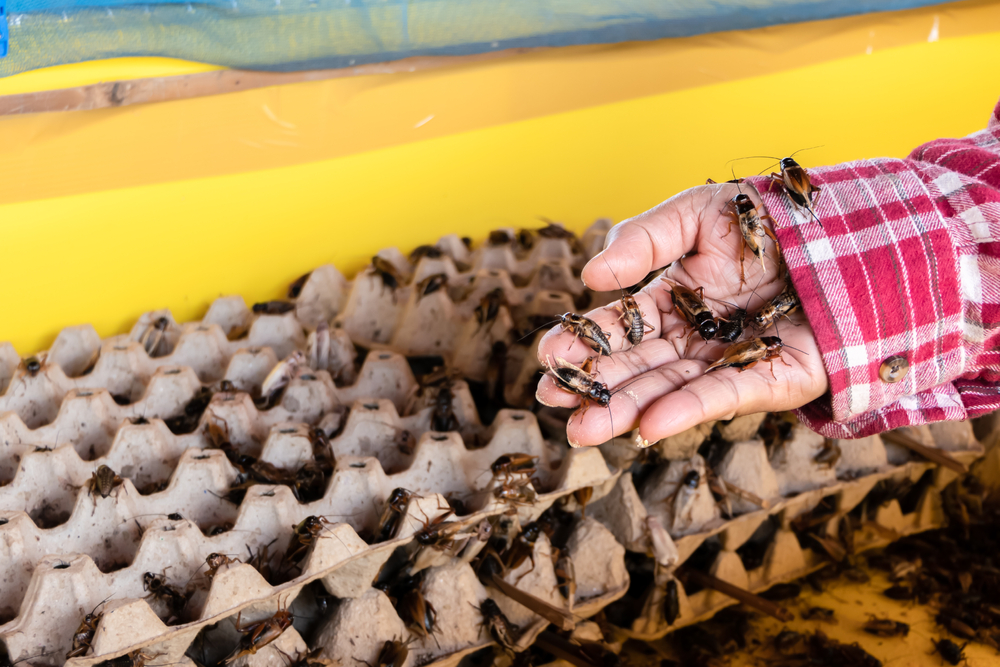
Protein alternatives aren’t new to the market either. There are a variety of reasons why people are into these sort of products: health, religion, worries about animal welfare and late-stage capitalism’s meat industry are just some reasons why. Plant-based proteins like soy or tofu, and other kinds of “meat products” like lab-grown or hybrid meat – these are some common examples of alternative protein sources as compared to traditional meat products from slaughtered animals. Insects, too, come under this category of alternative protein sources.
Look at it this way: there are an estimated 10 quintillion (10,000,000,000,000,000,000!!) insects alive at any point in time, which is about more than 200 million insects for each human on the planet. Imagine being able to depend on them as a source of protein – insect-farming certainly sounds more sustainable in the long run than what we have currently!
insects as “gross”.
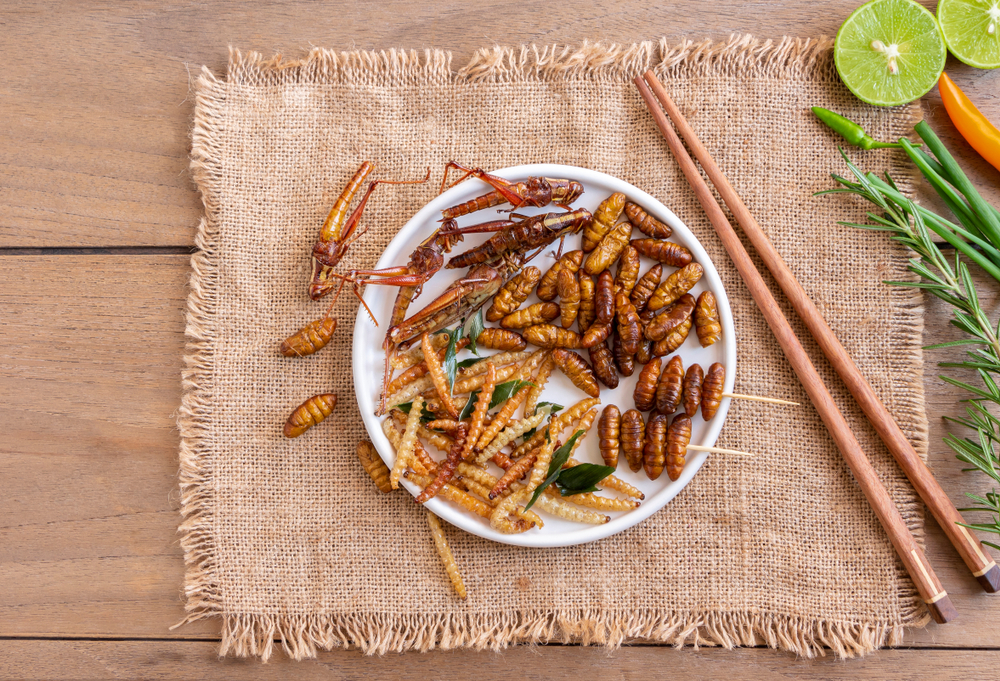
Studies have shown that concerns over insects as a source of protein-alternative are largely cultural. Western societies generally frown upon eating insects as they view it as repulsive and see it as “non-food”, to the point that it is associated with feelings of disgust and aversion. In contrast, societies where eating these insects have been normalised rarely see such strong feelings. Exposure to insects from a young age and education are some ways to potentially increase acceptance of eating insects.
It’s not to say that they taste bad either. Did you know that the black ants you see roaming around actually have a zesty lemon-pepper taste? Their texture is also reminiscent of roe and has thus given this insect the nickname of the caviar of the bug world as well. Other insects also fall into three general categories: first like nuts or mushrooms, secondly, like fishy and seafood, and lastly, more meaty and savoury. Insects can also come prepared in a variety of ways: deep fried, toasted, boiled, steamed, and even ground into fine powders so it won’t be as noticeable!
who is Entoverse?
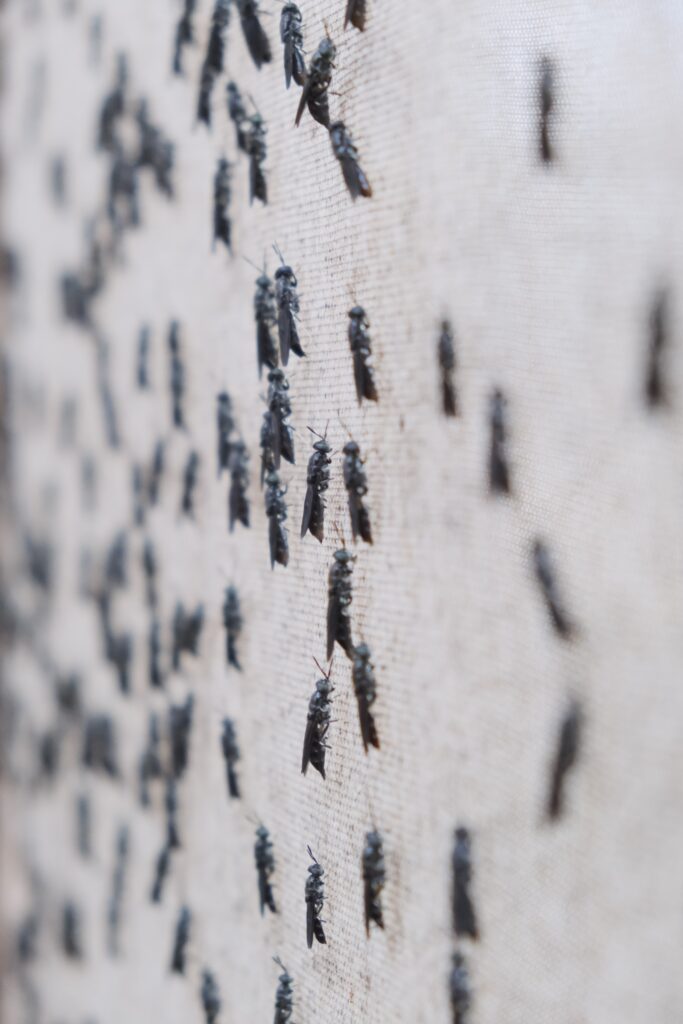
This is where Singapore-based startup Entoverse comes in. Founded in 2020, this startup delivers cutting-edge digital solutions for the fast-growing insect farming sector. They come up with all kinds of technologies to help with the optimization and industrialization of the growth of insects for both human and animal consumption, alongside organic waste management and CO2 reduction.
Their Entograte system is powered by AI. Optimised, effective and reliable, they generate data-driven solutions that predict, prevent and resolve key issues in the insect farming industry like early insect mortality. Considering how small and delicate insects can be at times, early mortality is a huge problem in insect-farming.
Entoverse has recently announced their partnership with Inagro, one of Europe’s largest insect research facilities. An R&D agency for agriculture and horticulture, they are experienced in dealing with multiple species of black soldier flies, mealworms and house crickets. Their current research is mainly focused on feed formulations, emissions measurements, and insect strain comparisons, all in hopes of optimising insect reproduction.
“For Inagro, cooperation with industrial partners, especially partners with complementary knowledge, is essential in order to keep our research and its outcomes relevant for this fast-growing insect business.” highlights Stefan Teerlinck, head of research at Inagro’s insect and aquaculture department.
future implications on insect-farming.
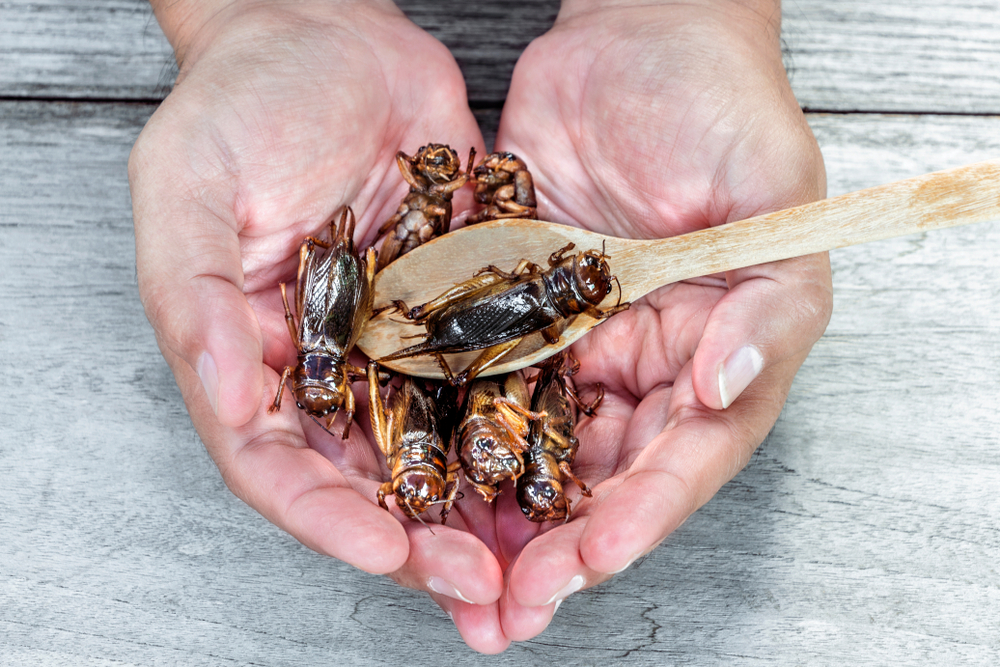
What this partnership would entail is entomology experts from both Asia and Europe collaborating and working together, all in order to help advance research and development in insect-farming through insights formulated from AI. This is especially important considering the vulnerability of insect populations due to their magnitude: there is a large dependence on automated monitoring and management solutions in order to detect the earliest sign of problems and prevent them from occurring. Things like unbalanced feed, wrong temperature environments and insect diseases need to be avoided in order to prevent the premature wiping out of the entire insect population.
Entograte’s system will be installed in Inagro research facilities to help out in farm management. It will address key production challenges, increase efficiency in insect egg production and larvae rearing, as well as support insect farms with automatised processes to control growth conditions within farms and thus ensure the optimisation of the rearing cycle. Furthermore, access to 2 unique supercomputers and a QSAR feed module will allow Entograte to analyse data sets and help mitigate insect population mortality. All of this would also help in the improvement of the food conversion ratio, which is the rate of measuring the efficiency with which livestock (insects in this unique case!) can convert their feed into the wanted output.
Combining in-depth knowledge in entomology and expertise in digital technology, insect-rearing technology would thus be able to be better automated, ultimately cultivating a tool and metric to better monitor and improve insect farming. Consequently, this too results in more economically viable business outcomes for the industry, as well as the growth of the insect population and their capacity to be studied.
So while many would be put off by the thought of consuming insects as a form of protein alternative, the potential of the advancement of the insect-farming industry could mean that we no longer have to be repulsed any longer!
Like this article? Why not check out 14 best vegetarian & vegan restaurants in Singapore or learn more about the world’s first hybrid meat innovation centre to be launched in Singapore this year?

